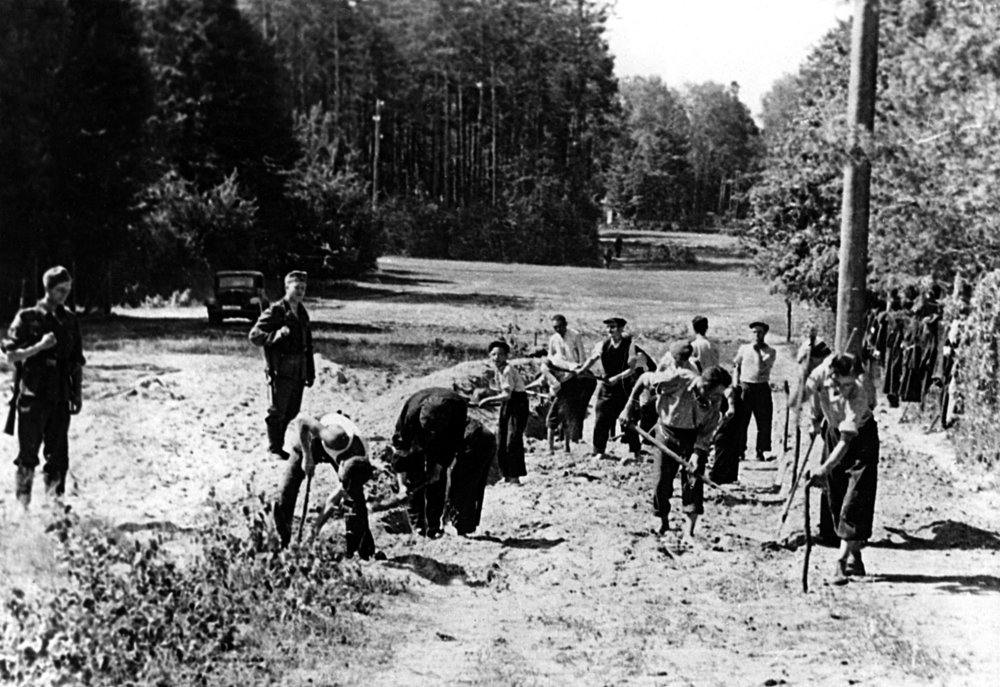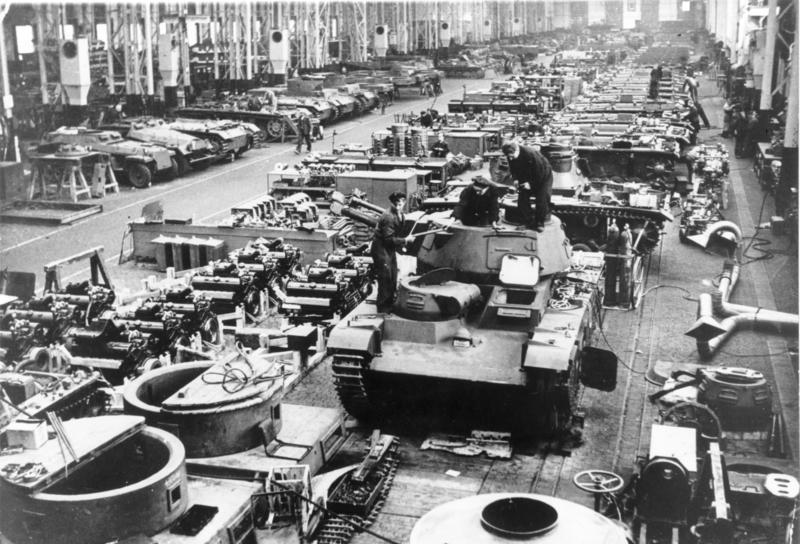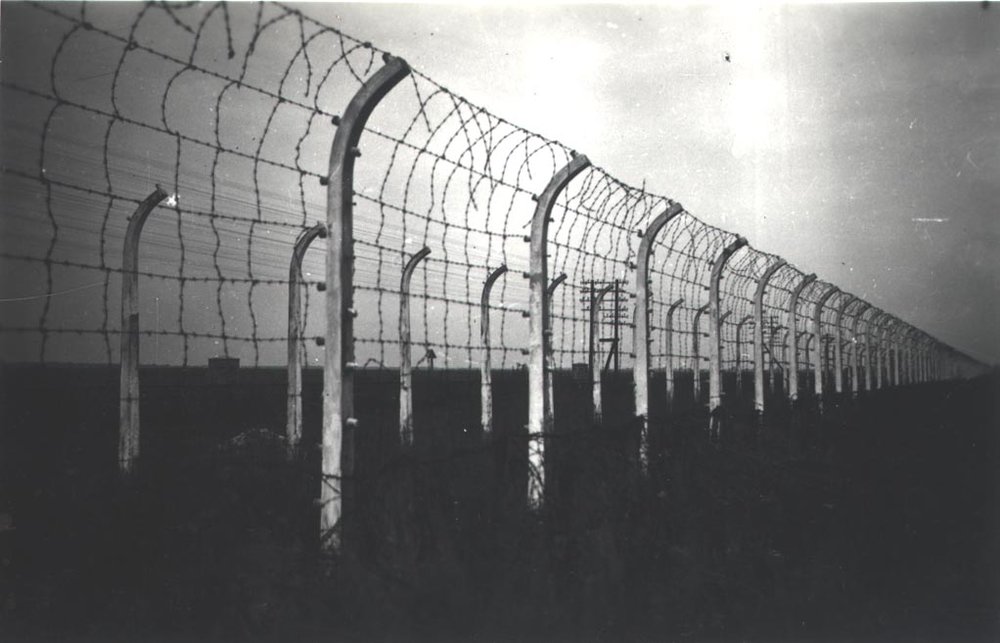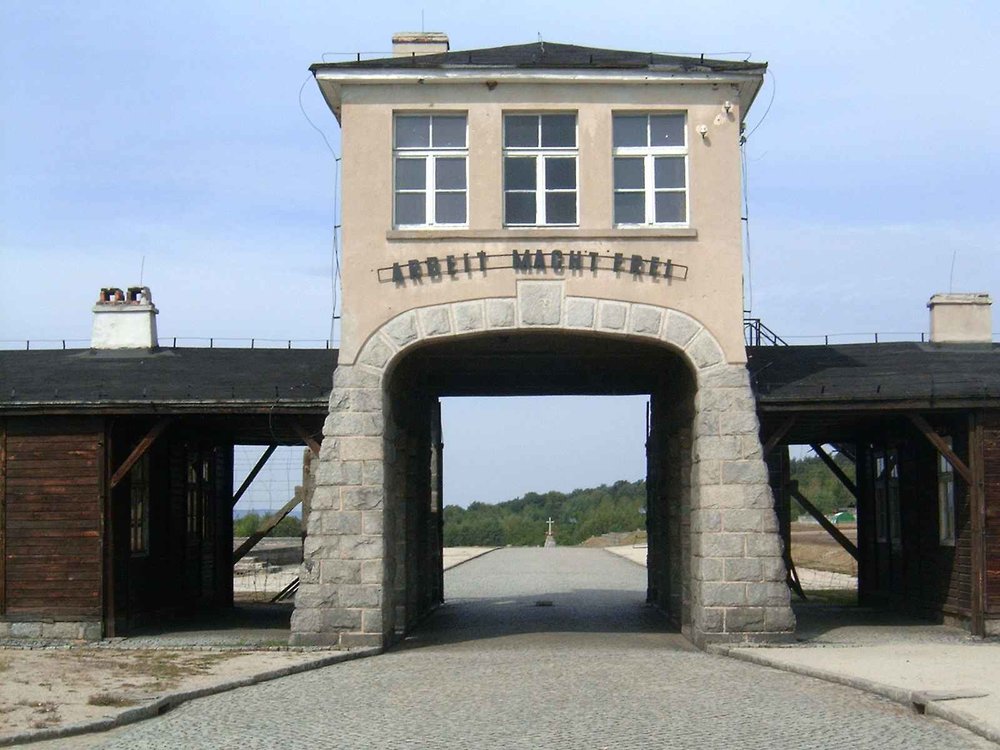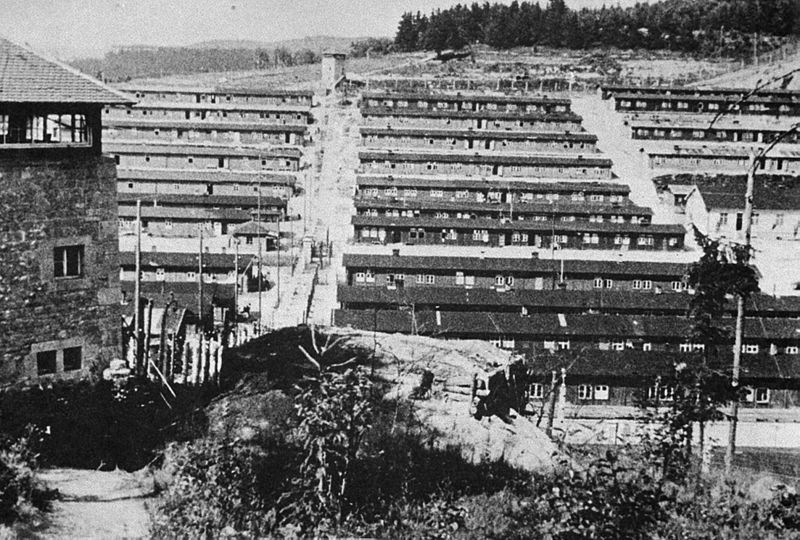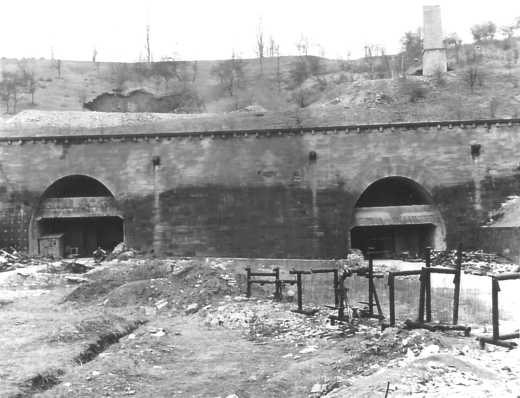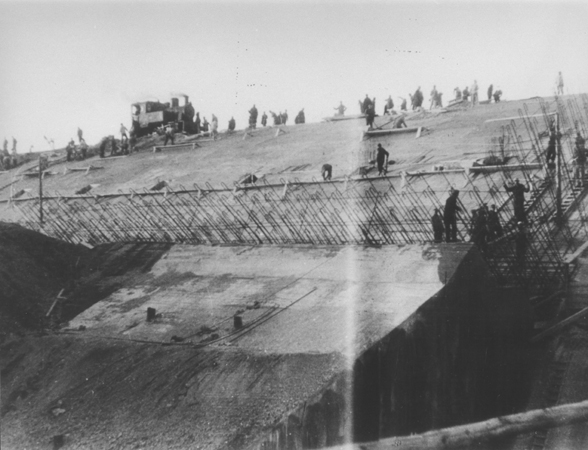Noemie Lopian’s family story was recently featured in You Magazine, exploring Noemie’s retracing of her mother’s wartime journey, filled with terror, bravery and resilience. Read You Magazine’s full article below.
More than 70 years after Renee Bornstein was imprisoned by the Nazis as a child, her daughter Noemie decided to retrace her mother’s wartime journey. What she discovered was a story of bravery, terror and incredible resilience…
Noemie’s story
Noemie Lopian, 56, a former GP, is married to Danny, a businessman. They have four children and five grandchildren.
Born in Strasbourg, France in 1934, Mama was five years old when she moved with her parents, elder sister Helen and younger brother Joe to the small town of St Junien in the southwest of France. However, her childhood ended abruptly in 1942 when the Nazis occupied Vichy France.
Life for Jewish people like my mother’s family became more difficult. Restrictions were imposed and people started to vanish – rounded up for deportation to concentration camps. Whenever my grandparents heard the Nazis were about to search the village, they would rush to hide the children in barns, convents and even the cellar of a local chapel. Can you imagine how it felt, as a child of just eight, huddled in a dark attic, unable to make a sound? Even a creak in the rooms above or below meant the possibility of discovery.

In 1944, my grandparents decided that the only way to save their three children – Mama, then aged ten, Helen, 13, and Joe, nine – was to get them to neutral Switzerland. Armed with false names and papers, it was arranged that the siblings would join a group of ‘non Jewish children’, as they travelled by train to a holiday camp over the border – so the story went – ‘to escape the bombing’. Near to the Swiss border, they were met by 21-year-old French Resistance worker Marianne Cohn, who would accompany them on a lorry to their final destination.
An hour from the Swiss border, the Alps tantalisingly spiking the skyline, the group were stopped by German police. Suspicious of who these children were, they were taken to the Prison du Pax in the border town of Annemasse where they were interrogated. I imagine Mama’s terror as she was rounded up by the Gestapo. I think of her listening to Marianne’s screams as she was tortured.
In August 1944, about two weeks after Mama’s arrival in Annemasse, the lord mayor, Jean Deffaugt, managed to negotiate their freedom. From there, members of the underground movement the Maquis took the children to a Red Cross refugee centre in Geneva and, after three months, they were returned home.

My mother never let her past negatively impact on the way she brought us up. Instead she always radiated love, warmth and protection. She was also incredibly attentive to my late father Ernst, whom she met through mutual friends and married in 1964; they settled in his native Munich. His parents and two younger sisters perished at Auschwitz, yet he had survived 12 transit and concentration camps and went on to qualify as a dentist and doctor after the war.
Even when my father died from a heart attack at just 55, Mama never wavered. I was only 12, my sister Muriel was 11 and my brother Alain was seven. Suddenly, she had to be both parents and yet somehow she found the strength to decide to move from Munich to Manchester so we could be part of a close-knit Jewish community. I got married at 19 and Danny – literally the boy next door–and I had our first child, Orly, while I was still at medical school. Mama looked after her during those early years, which meant I could study without worrying that my little girl was missing out on affection.
When I was 36, I finally read the book my father had written in 1967 in his native German about his wartime experiences. Die Lange Nacht (The Long Night) was terribly upsetting, but it made me realise at the world had to know. So, reliving his suffering, I translated it into English and it was published in the UK in 2016.

Although Mama had encouraged me with my father’s book, she still demurred from talking about her own past. But she eventually opened up ten years ago when she was asked to tell her story at a Holocaust Memorial presentation in Manchester. Then, last year, she decided she had to show her gratitude to the family of the lord mayor who had saved her. And so together we travelled to Annemasse.
At the same time, I was asked by the BBC – who had somehow heard Mama’s story – if I wanted to retrace her steps. The thought terrified me, but I wanted to get a better understanding of my mother as little Renee, and she encouraged me to do it.
When I finally stood in the cold building where she had been imprisoned, my heart was thumping. Afterwards, all I could do was hold Mama tightly. And down the corridor of those long years I felt I was hugging little Renee, too, giving her what she had needed then.
Now I know her past, when I look at Mama, I see something which rips into my soul: a terrified ten-year-old, wrenched from her parents, shivering before a Gestapo guard, a gun pointing at her head.

I sometimes wonder if I have inherited the trauma from her. The shadow of the Holocaust haunts me now, and I devote as much time as I can to educating others. I have set up Holocaust Matters, an interactive educational tool for anyone interested in learning more. Perhaps inside I’m consumed by my mother’s suffering. Yet the legacy for my own four daughters is quite different. I tell my girls to go out into the world, be kind human beings and make it a better place. Mama saw the worst – I want them to see the best.
Renee’s story
Renee Bornstein, née Koenig, 86, is widowed and lives in Manchester. She has three children, 11 grandchildren and eight great-grandchildren.
My childhood ended during the Second World War. When life finally returned to normal in 1945, I had left it behind. I was reunited with my parents – something I had only dreamed of – and I wanted to look forward. When I had my own children all I could think about was keeping them safe and I became quite good at closing off the past. And I did in those early years.
However, when Noemie, my eldest, reached ten years old, it hit me with full force. I looked at this little girl, the picture of absolute innocence, and I thought, ‘I was once like that’. The feelings were overwhelming – grief, pain, despair. But I pushed them back into the furthest corner of my mind. Not that I ever forget. I remember it all.

When our parents decided to send us away to Switzerland, we were first hidden in a Catholic convent in France for two weeks. I was so frightened and I missed my parents desperately. Being separated was agonising. I refused to eat and could barely sleep – I kept close to my brother and sister. It was all so strange to me. We were woken each morning at 6am for prayers and then were told to busy ourselves by picking asparagus in the gardens of the convent.
Meanwhile, there was the constant fear of discovery. I remember peering through a crack in the window and seeing SS men milling in the streets below. For years after the war, whenever I saw a man in uniform it would send shivers down my spine.
Once we started our journey to Switzerland – at first by train– I felt such terror as the SS prowled the carriages. My sister Helen swallowed the Swiss money my parents had given us in case the Nazis found it.
When we were caught on the final stretch of our journey, surrounded by soldiers with barking dogs and guns, it was terrifying. I thought we would die. In my mind I can see myself as a little girl. Being interrogated daily with my brother and sister at gunpoint in an empty room by Meyer, the Gestapo chief, a man with exceptionally bright blue eyes. I can still see a young boy curled up on a plank who had been beaten. Meyer pointed his gun at us and snarled, ‘If you don’t tell the truth, you will be beaten like him. So tell me, are you Jewish?’ Paralysed by fear, we could only shake our heads.
Every morning, Marianne was taken for questioning, every evening she returned with a red and swollen face. She had the opportunity to reveal our true identities and save her own life, but she never took it. Eventually, she was murdered.
I had no concept of time, though I later learned that after two weeks in prison our freedom was negotiated by the mayor of Annemasse and we were then taken to meet the Red Cross in Geneva. Miraculously, I was reunited with my parents after six months apart – they had survived by going into hiding around St Junien – as the war ended in Europe. Then my life began again.

My life with Ernst was built around family. Our children were our salvation. So when my husband died, I knew we needed to live in a close-knit Jewish community where we would find support. And so I decided we needed to move to Manchester. The community gave us all the welcome we desperately needed.
Not that our new location stopped me from being overprotective. Even when Noemie started high school, for the first two weeks I went to collect her every day. was so proud when she decided to follow her father into medicine and it was my pleasure to look after my granddaughter as she studied.
I’m especially proud of Noemie’s devotion to Holocaust education. When I said I wanted to go back to thank the mayor, she didn’t hesitate in doing everything she could to make that happen. When she returned to the places I had hidden as a child and the prison where I had been interrogated, I worried what the impact would be. But she needed to go and I recognised that – even though I shuddered inside at the thought of my child in those places.

Afterwards, we cried and hugged – proof that when love is strong enough even the most horrible things from the past will never destroy the future.

